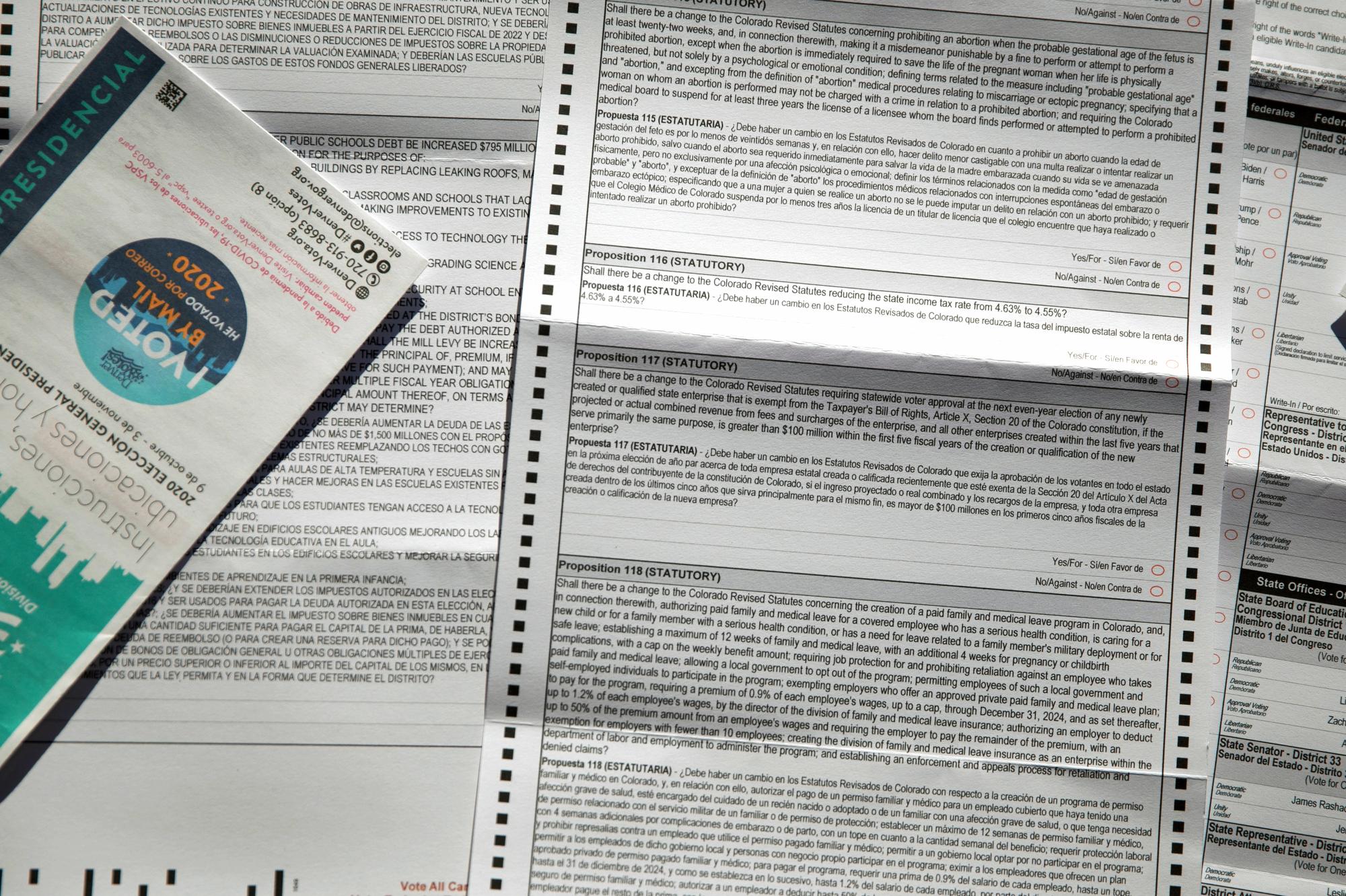
The Colorado Secretary of State’s office on Wednesday ordered a nonprofit organization to reveal its donors and pay a $40,000 fine, saying it violated Colorado law by contributing millions of dollars to conservative causes in the 2020 election.
The group, Unite for Colorado, paid for signature gathering and digital advertisements related to several ballot initiatives last year, according to documents in a complaint that prompted the fine. As is common with “dark money” nonprofits, it did not disclose where its funding came from.
Critics of the group argued that Unite for Colorado crossed the line between nonprofits and political groups. A complaint filed in August 2020 argued that the group was spending so heavily — and was so closely involved in politics — that it should have registered as a political issue committee and reported more detail on its financial activities.
“We watched as Unite for Colorado was stood up almost overnight — no past experience,” said Scott Wasserman, president of the progressive Bell Policy Center, who pressed the complaint.
The group’s only purpose, he argued, “was to put regressive tax cuts on the ballot and to advance other issues that they were clearly exploiting for political and partisan purposes.”
Unite for Colorado spent about $4 million on three different ballot initiatives, which was almost a quarter of its total of $17 million in spending in 2020, according to documents from the complaint.
The group supported Proposition 116, which asked voters to cut the state income tax, and Proposition 117, which gave voters new authority over the creation of fees; both measures passed. The group also spent seven figures to oppose the state’s involvement in the national popular vote effort; that measure still passed.
These kinds of nonprofits are known as 501(c)(4)s or “social welfare” organizations. They are only allowed to engage in political activities if it’s not their “primary” purpose, but the definition of “primary” remains unclear, according to the campaign finance watchdog OpenSecrets.
Separately, Colorado’s constitution says that any organization that has “a major purpose of supporting or opposing any ballot issue or ballot question” must register as a political committee and file reports. The complaint argued that Unite for Colorado had adopted the ballot measures as a major purpose.
Unite for Colorado describes itself as an “issue advocacy organization that believes in a smaller, more accountable government.”
The state’s Elections Division initially moved to dismiss the complaint, saying that it didn’t have enough evidence to support its claims. But Deputy Secretary of State Christopher Beall blocked that move, instead sending the complaint to further proceedings.
A hearing officer in August ruled that Unite for Colorado had failed to properly register and file reports, a decision that Beall supported in a final agency order on Wednesday.
Unite for Colorado argued that the Secretary of State’s office, which is run by Democrats, was using the complaint to target conservatives, describing its actions as a “committee with a partisan elected official and partisan appointees issuing orders against their political enemies.”
The group also argued that state law was being misinterpreted in the case.
Wasserman acknowledged that his own group, Bell Policy Center, also has a nonprofit that gives to political groups and does not disclose its donors, but he argued that it had a decades-long history that included major activities outside of politics.
“I think the message is that you have to pass the smell test here,” he said. “Does your political entity only exist for the sole purpose of funding ballot campaigns and working on partisan issues, or do you have a broader mission, and do you really reflect the grassroots needs of the citizenry?”
An attorney representing Unite for Colorado in the matter, Suzanne Taheri, did not immediately respond to a request for comment. The group can fight the decision in court if it chooses to appeal.
Editor's note: This article was updated on Dec. 9 to correct the date of the order from the Secretary of State's office.









